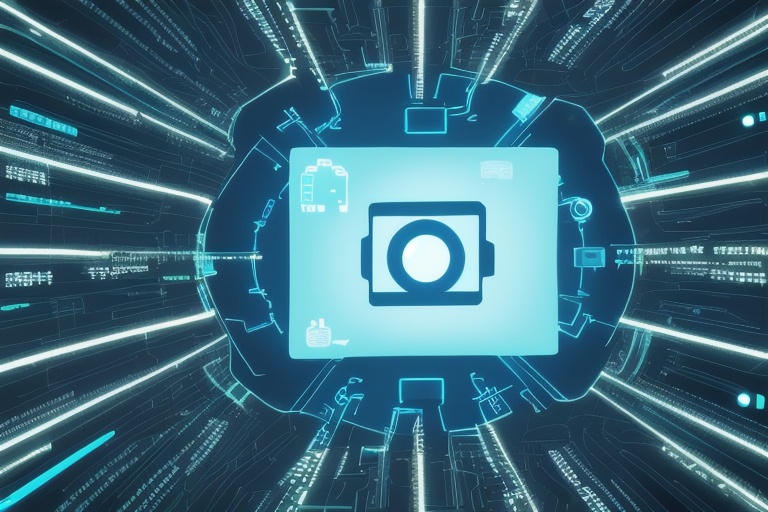The world of work is undergoing a transformation, powered by the rise of artificial intelligence (AI). From self-checkout kiosks to customer service chatbots, it's evident that AI is not just a futuristic concept, but a present reality with profound impacts on employment. With this evolution comes a pressing question: which jobs will AI replace, and how can individuals adapt to remain competitive in the ever-changing job market?
The world of work is undergoing a transformation, powered by the rise of artificial intelligence (AI). From self-checkout kiosks to customer service chatbots, it's evident that AI is not just a futuristic concept, but a present reality with profound impacts on employment. With this evolution comes a pressing question: which jobs will AI replace, and how can individuals adapt to remain competitive in the ever-changing job market?
Understanding AI and Job Automation
AI's influence on the job market is multifaceted. On one hand, its advance has led to machines assuming tasks traditionally performed by humans. For example, roles characterized by routine such as data entry, standard customer service inquiries, and predictable assembly line functions are prime candidates for automation. The potential for increased efficiency and reduced costs through AI means that businesses are incentivized to incorporate these technologies, which in turn could result in a reduction of jobs within these sectors.
But this is only one side of the coin. AI is equally capable of generating new job categories. Emerging fields like machine learning, data analytics, and robotics are rapidly expanding and require specific skill sets that were scarcely known a decade ago. Moreover, AI can augment human capabilities in sectors such as healthcare, where it can aid in diagnosis and personalized medicine; finance, where it can enhance risk assessment and fraud detection; and in education, through personalized learning experiences tailored to individual student needs.
Adapting to the AI Revolution
As AI technology continues to advance, it is imperative for professionals to adopt the following strategies to safeguard their careers from becoming obsolete:
Developing Human-Centric Skills
While machines excel at tasks involving patterns and repetition, they fall short in areas necessitating creativity, nuanced decision-making, and complex interpersonal interactions. Thus, one of the best defenses against job automation is to cultivate skills that are inherently human. Pursuing roles that demand critical thinking, problem-solving, and emotional intelligence can reduce the risk of being replaced by AI.
Embracing Technological Fluency
Familiarity with the latest technological trends is not a luxury—it's a necessity. By understanding and integrating new technologies into your work, you not only expand your capabilities but also demonstrate a level of adaptability that is valued in the modern workplace.
Reskilling and Upskilling
As the landscape of available jobs evolves, the willingness to learn new skills or improve existing ones becomes crucial. Identifying high-demand areas and investing in training for skills pertinent to those sectors will enable professionals to navigate transitions within the job market smoothly.
Commitment to Lifelong Learning
The pace of technological change is accelerating, and keeping abreast of industry developments is more important than ever. Engaging in continuous education through workshops, online courses, and professional development initiatives can help maintain a competitive edge.
Exploring Entrepreneurial Avenues
In an uncertain job market, the ability to create your own opportunities is invaluable. Entrepreneurship and freelancing can offer a degree of autonomy and can be an effective way to capitalize on personal skills and innovate within a chosen field.
Safe Harbors in the AI Storm
There are industries where the human element is irreplaceable. Careers in cybersecurity, digital marketing, healthcare, environmental science, and education are less likely to be subject to full automation. These roles often require a degree of empathy, ethical judgment, or advanced problem-solving that AI cannot replicate.
Navigating the Complex Future
The long-term impact of AI on jobs is a tapestry woven with uncertainty. While some positions may disappear, others will emerge, particularly in areas directly linked to AI such as data science and advanced robotics. What is clear is that being nimble and up-to-date with industry trends is the best method for employees to secure their future in the workforce.
AI's transformative potential also raises broader societal issues. Disparities in pay may widen as industries more amenable to automation face greater impacts. This potential shift necessitates careful consideration of educational and policy measures to ensure equitable access to job opportunities in a future where AI plays a central role.
Conclusion
In conclusion, AI presents an intricate picture of challenges and opportunities. It's an engine of change that pushes us to re-evaluate the skills we value and the nature of work. However, with thoughtful preparation and a proactive approach, individuals can leverage AI to forge a successful path in the professional world of tomorrow. Despite the potential for disruption, AI can also serve as a catalyst for growth, spurring innovation in ways we are only beginning to understand. As we navigate this journey, staying informed and flexible is key to embracing the vast opportunities AI brings to the job market.
Information for this article was gathered from the following source.




